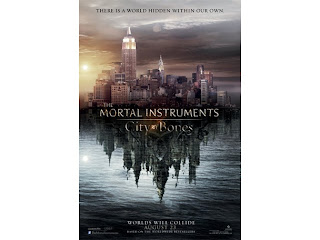 |
Mystery RoadDirected by Ivan Sen
Four Stars |
By Jonathan Fisher
Mystery Road
doesn’t surrender its secrets readily. It is a difficult film to describe and
review, because like other great thrillers of its ilk (Wake in Fright, Fargo) it
functions on a number of planes. First and foremost, it is a murder mystery –
its opening scene makes that clear. A truckie pulls over to the side of a
deserted highway, checking his load. Perturbed by the ruffling of wild dogs,
the truckie investigates a small underpass, and finds the mutilated body of a
teenage Indigenous girl.
Shortly thereafter, we meet the film’s protagonist,
Detective Jay Swan (Aaron Pedersen), who has recently returned to his home town
in isolated western Queensland after some time working in the city. He
investigates the murder of the aforementioned Indigenous girl. He finds himself
up against an intransigent local police force that would prefer to brush the
whole thing under the carpet, as well as resentment in the Indigenous community
when he questions the locals.
Complicating all of this is Jay’s ethnicity, you see – he is
the sole Indigenous officer on the local force, in a community that clearly has
a high Indigenous population. There is rancour, tension and of course racism
between the whites and blacks in the town, and Jay is caught right in the
middle of this. Mystery Road manages
to incorporate the issue of race into its tale quietly, and its tone benefits
from the fact that this aspect of the story isn’t shouted from the rooftops.
It’s clear that racial tensions are fuelling most of the action in the story,
and for the most part the movie lets the issue be, appreciating the toll it has
taken on Swan and how it affects the choices he makes. It isn’t overstated, which is often a risk in
a film like this.
As the movie gets into the swing of things, it becomes clear
that it has aspirations beyond being a straightforward whodunit. As with most
modern cinema, it’s almost impossible to watch new movies without thinking
about what they remind you of. Oh, that scene was a bit like a Coen Brothers
scene; that shot is a bit like the one from the old Scorsese movie; isn’t this
all a bit like LA Confidential? Most
of modern cinema harks back to things that have come before – we live in the
era of the pastiche. This poses a problem for modern cinema’s aesthetics. How
can a movie stand on its own two feet if it is constantly reminding its
audience of other, presumably better works?
I tried my hardest to draw comparisons between Mystery Road and other movies, but I
gradually realised that most comparisons were superficial in nature. Yes, the
black humour (and Mystery Road is
very funny on occasion) is a little like a Coen Brothers picture. Yes, the
overarching plot of a ‘good cop’ trying to beat the corrupt system to preserve
justice is a bit like LA Confidential.
And yes, many of the shots and sequences reminded me fleetingly of other
directors. (interestingly, I found many shots and sequences of Mystery Road to be quite reminiscent of
another Australian crime masterpiece from recent years: Animal Kingdom by David Michôd.
Australian cinema, so vastly improved in recent years, now seems to be worth
imitating)
Mystery Road is its
own movie, and while it doesn’t quite maintain its focus and meanders every so
often, for the most part it’s a viciously precise and thoughtful thriller.
Aaron Pederson is Oscar-worthy as Jay Swan, and a host of supporting actors
also inhabit their characters like a second skin. The film benefits from Ivan
Sen’s directorial style, which is straightforward and considered. There are
plenty of images that leave an imprint on the memory here – the recurring motif
of the ‘bird’s eye view’ that intercuts scenes, even images as simple as Jay
sitting solemnly in front of his dinner, considering his next move.
Sen is also adept at using simple,
powerful signals to demonstrate Swan’s precarious position as an outsider to
both the police force and his own community. One of the biggest ones is his
car, a sturdy looking Holden. An Australian make, and a fine one – for the most
part shiny and clean, a striking symbol of an upwardly mobile citizen. It
drives others in the town, who aren’t so lucky, crazy. Swan’s ambivalence
towards alcohol (which makes sense due to numerous hints about his prior
proclivity to drink before entering the force) sets him apart from his loutish
fellow officers. When his boss suggests they go for a drink to escape the
bleating heat, Swan looks at his watch suspiciously, before we see him sipping
an ice water. The optics of a 60-plus-year-old constable drinking beer in a
country pub full of white people while on duty are far less damaging than a
young Indigenous officer doing the same thing.
Lovely little moments like these
abound in Mystery Road. It’s a smart
movie, realistic about race relations, while also being aware of the need for
its central murder mystery to work. The investigation is engrossing, and builds
up to a finale that, while retaining the elgant and deliberate pacing of the
rest of the film, is more visceral and exciting than most big studio cops and
robbers movies we typically see. Mystery
Road, by most measures, is a quiet masterpiece.




























